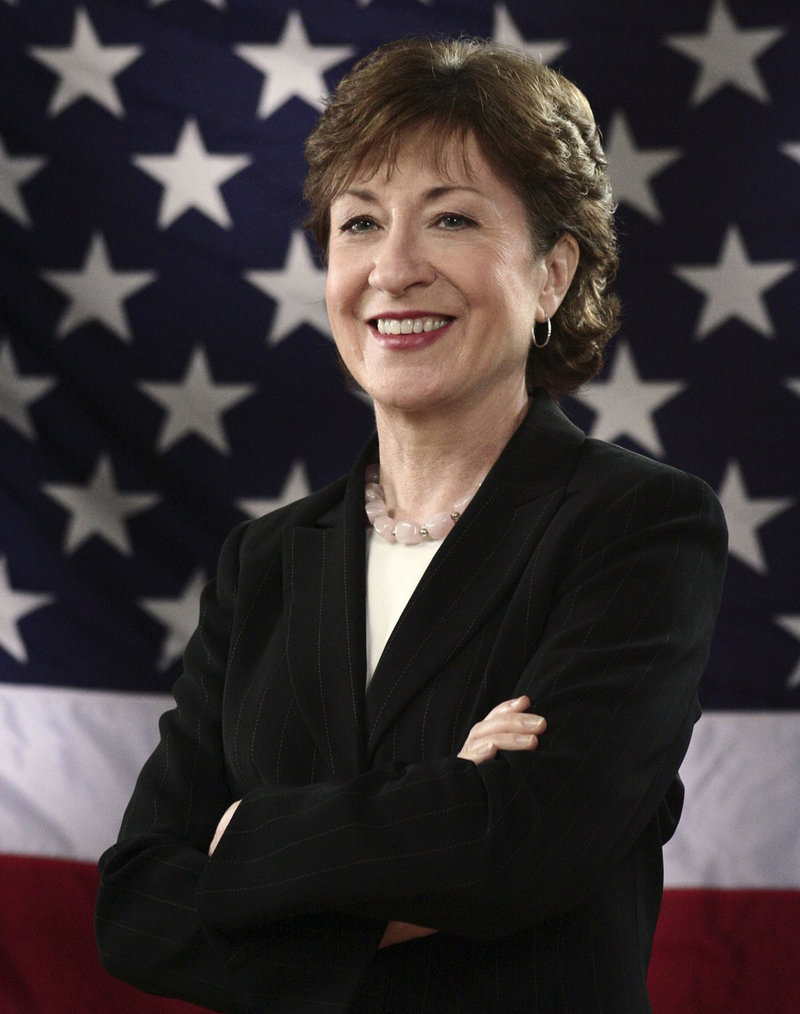WASHINGTON – As her Senate committee prepares to investigate the incident, Sen. Susan Collins of Maine said she wants to know why a U.S. facility that was attacked by militant groups in Benghazi, Libya, wasn’t better protected, and whether security policies elsewhere must be revisited.
“It isn’t just an attempt to have accountability, important though that is,” Collins said Friday of the investigation. “It’s also to identify problems that need to be fixed. This attack has raised questions in my mind about the security at other embassies and consulates in other dangerous parts of the world.”
Collins is the ranking Republican on the Senate Homeland Security and Governmental Affairs Committee, which has initiated an investigation into the attack Sept. 11 in Benghazi. Four Americans, including U.S. ambassador J. Christopher Stevens, were killed.
The investigation — begun last month by Collins and committee Chairman Sen. Joseph Lieberman, I-Conn. — comes amid questions about who was behind the attack and events leading up to it.
The incident has become increasingly political in recent weeks, with Republican lawmakers questioning the Obama administration’s response.
Initially described as a protest turned violent, the attack now appears to have been well planned by militant Islamic groups.
In an interview Friday, Collins said one question she wants answered — and one raised by numerous other Republicans in recent weeks — is why the consulate in Benghazi was not better protected.
Militant groups had attacked the consulate and other Western targets in preceding months, and Stevens and other American personnel in Libya reportedly raised concerns about security.
“The more that I learn and the more that I read about the requests for stronger security from the diplomatic personnel stationed in Libya, the stronger my concern grows,” Collins said. “It simply is inexplicable to me that repeated requests from the ambassador and from the regional security officer for stronger security were declined in Washington.”
News accounts suggest that additional security requests were, indeed, denied by officials in Washington. State Department officials apparently deemed the security as adequate, given the perceived threat level, but have since acknowledged that assessment was wrong.
Officials insist there is no guarantee that the requested extra support would have been enough to deter or defend against such a sustained attack, The Associated Press reported Friday.
Collins said the incident also raises concerns about U.S. reliance on foreign security officers at embassies and consulates in troubled areas, and about the adequacy of the physical protection.
“This is not Australia or Canada or Great Britain, where relying on local guards may well make sense and save taxpayer dollars,” Collins said. “This is a country that is unstable, that has heavy weapons and a weak central government that does not have full control over heavily armed militias that exist throughout the country.”
International law requires the host government to provide any security posted outside the walls of a foreign country’s facility.
In addition to local guards, the consulate in Benghazi relied on a friendly local militia, whose members tried to defend it on Sept. 11.
Republicans have questioned whether the U.S. government did everything it could to respond on the night of the attack.
On Thursday, intelligence officials tried to refute news reports that the CIA staff was told to “stand down” during the assault by providing the most detailed accounts yet of the CIA’s involvement in the fight that night.
Intelligence officials said CIA security officers were on the scene within 25 minutes of the first call for help and a second group was dispatched by air from Tripoli.
Those officers fought their way into the compound and helped the consulate staff escape to a nearby CIA annex, which later came under attack.
Lieberman and Collins have requested a long list of documents from the State Department, the Defense Department, the Justice Department and intelligence agencies. Collins said Friday that those documents are beginning to trickle in, but at a slower pace than she prefers.
Echoing comments from other Republican lawmakers, Collins criticized the Obama administration for its initial public statements attributing the attack to protests over an anti-Islamic video. Administration officials and others have blamed the inaccurate statements on the “fog of war” immediately after the attack.
The Senate Homeland Security Committee has yet to set dates for hearings on the incident. Members are due to receive a classified briefing after Tuesday’s elections.
Asked whether her committee could avoid politicizing the issue, Collins noted that the committee has conducted in-depth, bipartisan investigations into numerous other emotional, high-profile issues. Those include the Sept. 11, 2001, terrorist attacks, shootings at the Fort Hood Army base in Texas and the Bush administration’s failings in the initial response to Hurricane Katrina.
“So I think we have shown time and again that we can conduct a fair and thorough investigation even in an environment that has become increasingly partisan,” Collins said.
Washington Bureau Chief Kevin Miller can be contacted at 317-6256 or at:
kmiller@mainetoday.com
Send questions/comments to the editors.



